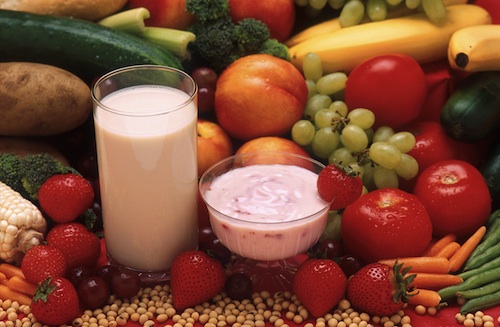Eating well is key to not only physical, but also mental health.
Just like our heart or muscles, the brain requires nutrients to function properly, bringing about palpable effects like improved cognitive skills, better memory and enhanced ability to focus.
The right food can have a great effect on the working of our brain—it can promote neurotransmitter production, help us concentrate, reduce inflammation, as well as protect against neural degeneration that comes with age.
Before delving into the most important nutrients that can boost our brain power, I’m going to point out some necessary components of a healthy diet—excellent for the overall functioning of our bodies, including our brains.
Healthy Diet—General Rules
The first rule of a good diet is regularity—our bodies like to receive nutrients at regular intervals and eating five times a day seems to be an optimal solution. Several studies have already shown us the importance of breakfasts for memory and knowledge acquisition in schoolchildren, so it’s safe to assume that the same goes for adults—we should start each day with a proper breakfast.
A healthy diet is not only about how often we eat, but what we eat as well. In general, the amount of fruit and vegetables in our diet should be maximized, while fast food and snacks with lots of salt and saturated fats minimized.
This is important not only for the body as whole, but specifically for the brain; a recent British study, for instance, found out that diets rich in saturated fats actually cause damage to neurons that regulate energy and appetite in mice. The same goes for sugar—overly high glucose levels in our blood or sugar spikes can lead to cellular damage throughout our body, including our brain.
What to Eat.
Here’s a list of nutrients that are great in supplementing our brains with elements that boost its power and cognitive functioning, helping us to focus and analyze information.
Fish
Healthy fats like Omega 3 and 6 fatty acids are crucial for our brain function and they happen to occur naturally in fish as EPA and DHA. Low DHA levels have been linked with a higher risk in developing Alzheimer’s disease and memory loss. Including fish like salmon, herring, mackerel, sardines or trout in our diet is highly advisable (they also happen to be delicious).
Seeds & Nuts
A great amount of healthy oils and Vitamin E are contained in seeds and nuts, in particular pumpkin seeds (excellent source of zinc), flax seeds, walnuts, hazelnuts, almonds and cashews. The author of Superfoods Rx: Fourteen Foods Proven to Change Your Life, Steven Pratt, points out that high levels of the antioxidant Vitamin E correspond to less cognitive decline with aging.
Avocado
It’s a fatty fruit, true, but the fat in avocado is a monosaturated one, which actually contributes to blood circulation that in turn affects our brain. Avocados lower blood pressure as well, which is another factor that promotes brain health—hypertension is a risk factor for a decline in cognitive functioning.
Blueberries
Animal studies have shown that blueberries help to protect our brains against age-related conditions like Alzheimer’s disease or dementia. Thanks to the flavonoids they contain, blueberries also improve motor skills, memory and learning abilities.
Herbs
Rosemary improves cognitive function and memory by helping in blood circulation, along with a positive effect on our mood. A different herb traditionally associated with memory boost is sage, which eaten raw can add an interesting flavor and quality to our diet.
Olive Oil & Coconut Oil
Coconut oil contains medium chain trigycerides used by the body as an energy source—leaving all the glucose to be burned by the brain. Coconut oil benefits blood circulation, which is always beneficial to our thinking organ. Olive oil, on the other hand, is a source of monosaturated fat—just like avocado, it helps to slow down the process of brain aging.
The Greens—Broccoli & Spinach
While broccoli is a great source forVitamin K, known for its effect in improving cognitive function and brain power, spinach can actually prevent or delay dementia, slowing the effects of aging on the brain—just like seeds and nuts, it contains lots of Vitamin E.
Love elephant and want to go steady?
Sign up for our (curated) daily and weekly newsletters!
Apprentice Editor: Kimby Maxson/Editor: Travis May
Photo: Wikimedia












Read 0 comments and reply